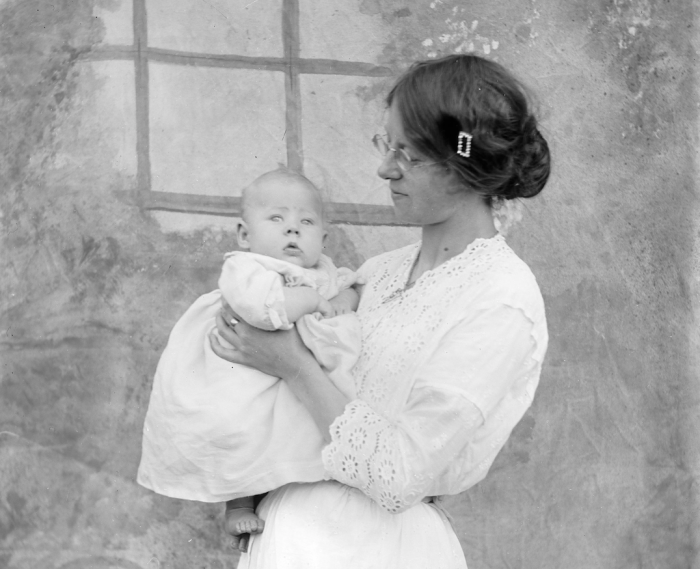Until recently, I believed family bonds were lifelong, sacred, unbreakable pacts. Spoiler: they are not.
At 25 years old, I decided to cut contact with one of my parental figures. A decision that, in retrospect, I should have made years ago—but I was always hampered by a distorted sense of obligation. I believed that because my parents had gifted me with life, this life of mine belonged to them. I thought that sticking around was my inherent role as a daughter.
Until recently, I was convinced I had no choice in whether or not I inherited the pain and sorrow that plagued my caregivers. I believed I had to accept their self-deprecating behaviors and absorbed their negativity, being the emotional sponge that I am.
I felt obliged to stay in contact with them at all costs, even though they continuously disrespected my emotional boundaries.
I thought it was my job to comfort them, even though they provided me with never-ending streams of criticism disguised as honesty—instead of the unconditional support that I was so intensely needing.
I truly believed I was obligated to put their needs above my own (despite their attempts to ruin other relationships out of jealousy and bitterness). Even then, I still thought I owed them my loyalty.
Because family is forever, right? Well, maybe not.
Maybe, in the end, family bonds are like any other type of human relationship—fragile, faulty, and, in some cases, finite.
While our conventional beliefs about family relations might tell us otherwise, we always have a choice in who we let into our lives. At all times, we have permission to walk away from people who do not contribute to our journey.
Even if their blood runs through our veins. Even if they go by the name of Mum or Dad.
No exceptions.
We need to acknowledge that family relations are not immune to the continuous ebb and flow that is natural to all social links. People move in and out of our life, and that’s okay.
It might be time to break away from the “family is sacred” myth that is so deeply ingrained in our societies. And instead, let’s embrace a new way of thinking about family as a concept.
Perhaps, parents are just two people who were physically involved in our conception.
And, perhaps our true parents are the souls (blood related or not) who have helped us grow throughout the years, on a personal and spiritual level. They are our counselors, teachers, and mentors. We find them in writers and philosophers. In the books they have written and the lessons we draw from them. We see parents in the experiences that shape us—from monthlong trips to India to five-minute walks in the park. We find them in our failures and our successes.
Perhaps our siblings are not only the peers who incidentally grew up in the same household as us. Instead, we may find siblings in the spirits who stand beside us—who support us in hardships and with whom we celebrate our accomplishments.
They are the brothers and sisters who keep us grounded when our monkey-mind starts wandering. They are the squad, the team, the gang. Whatever you want to call them. They are those who we know have our backs because we’ve got theirs. They are the ones we call home.
Finally, perhaps our children are not the little ones who come from our womb. Maybe our children are the poems we write, the songs we sing, the paintings we draw, and the stews we cook. The love we feel for our partners, too. Perhaps instead of nurturing babies, we nurture our bodies—we feed it, bathe it, and soothe it as gently as we can.
Our children are our dreams and hopes and ambitions. And yes, our children are our pets and plants—endearingly dependent on our attention and affection.
So, perhaps our family is not a random set of individuals with whom we share a meal on Christmas Eve. Maybe they are the souls we consciously choose to surround ourselves with.
They are the choice we make—over and over again.
Do not pity those who are no longer in contact with a parent, caregiver, or any other relative. We find family members wherever we go. Some stay with us for years on end while others’ presence is only temporarily enjoyed.
Once we acknowledge this process, we allow ourselves to be more selective in whom we let into our lives. We allow ourselves to stop conforming to those who are committed to keeping us small.
And eventually, we may start creating our authentic tribe—in which blood relations are just another arbitrary characteristic.
“Toxic people are still toxic—even when they’re disguised as family.” ~ Mel Robbins
Ready to join?
Hey, thanks so much for reading! Elephant offers 1 article every month for free.
If you want more, grab a subscription for unlimited reads for $5/year (normally, it's $108/year, and the discount ends soon).
And clearly you appreciate mindfulness with a sense of humor and integrity! Why not join the Elephant community, become an Elephriend?
Your investment will help Elephant Journal invest in our editors and writers who promote your values to create the change you want to see in your world!
Already have an account? Log in.
Ready to join?
Hey, thanks so much for reading! Elephant offers 1 article every month for free.
If you want more, grab a subscription for unlimited reads for $5/year (normally, it's $108/year, and the discount ends soon).
And clearly you appreciate mindfulness with a sense of humor and integrity! Why not join the Elephant community, become an Elephriend?
Your investment will help Elephant Journal invest in our editors and writers who promote your values to create the change you want to see in your world!
Already have an account? Log in.
 Share on bsky
Share on bsky






Read 43 comments and reply